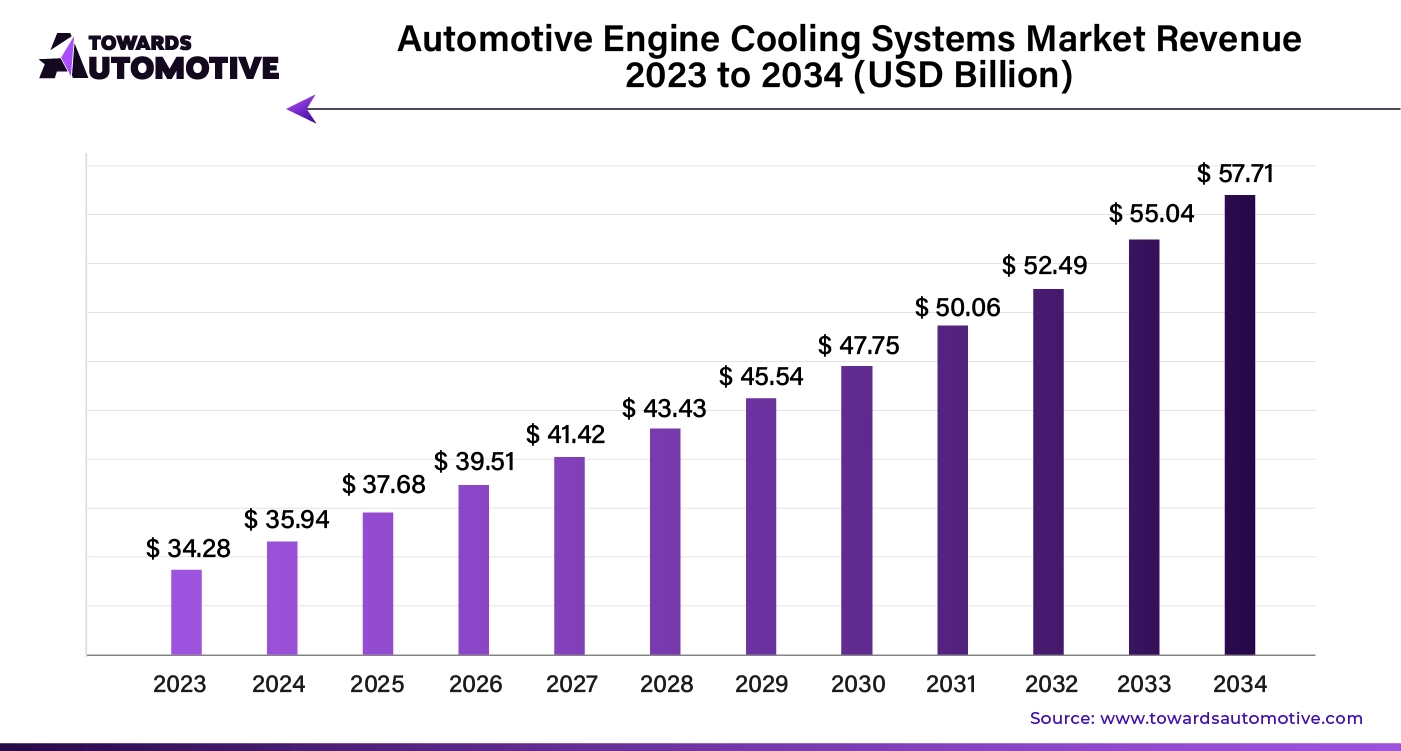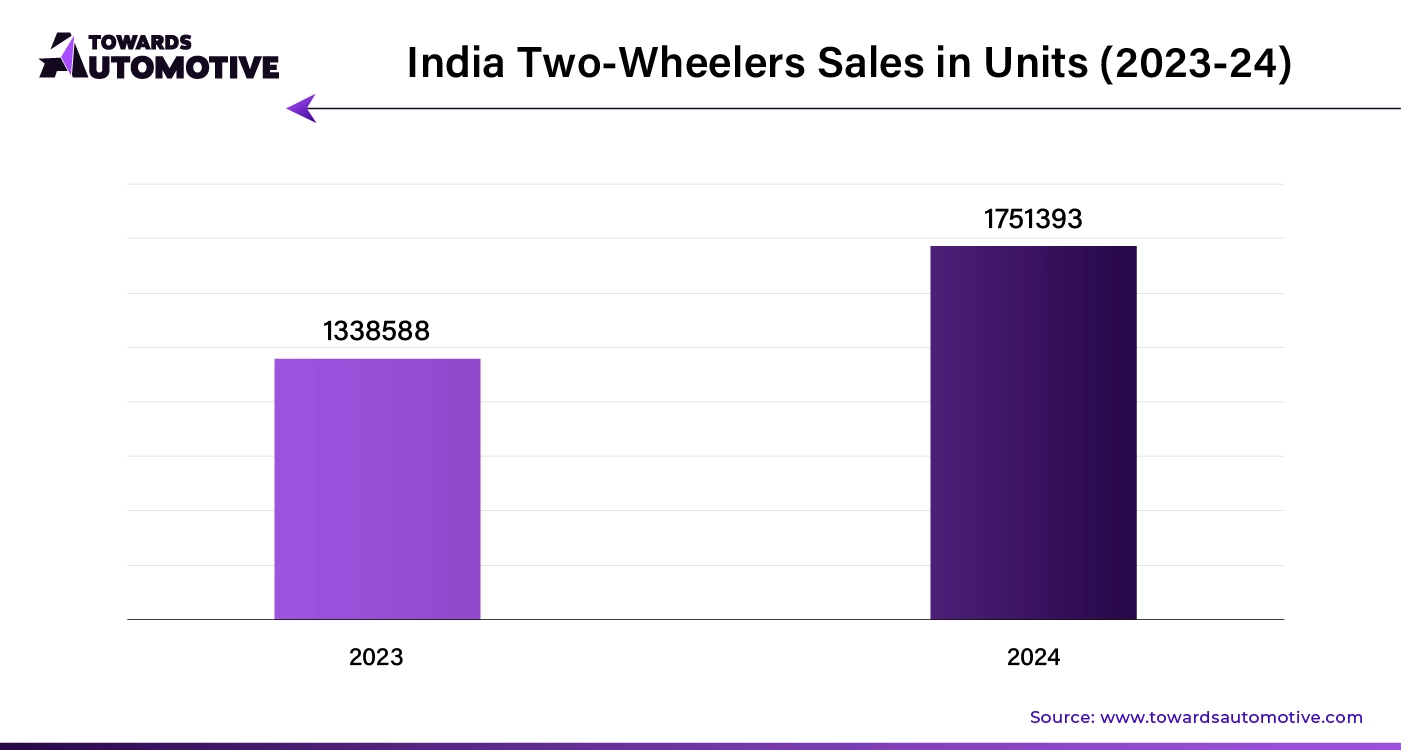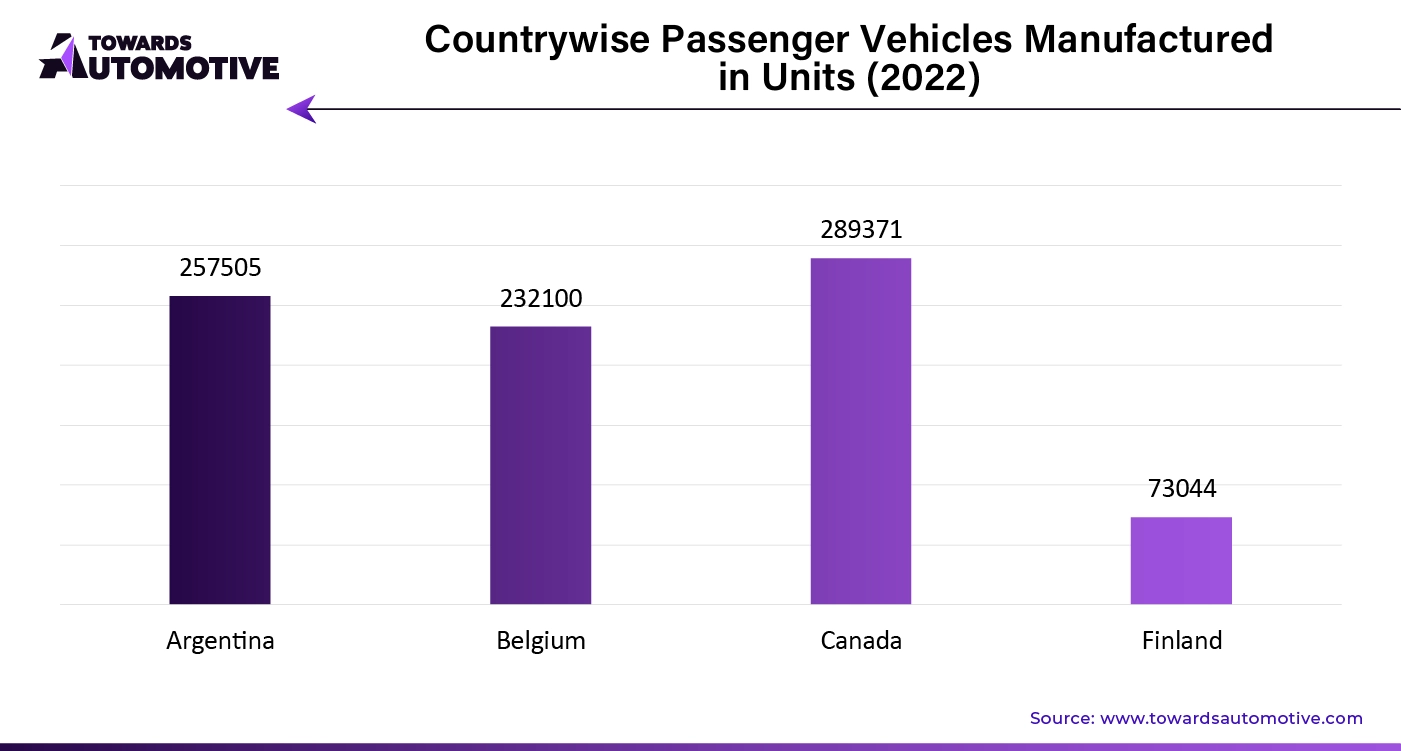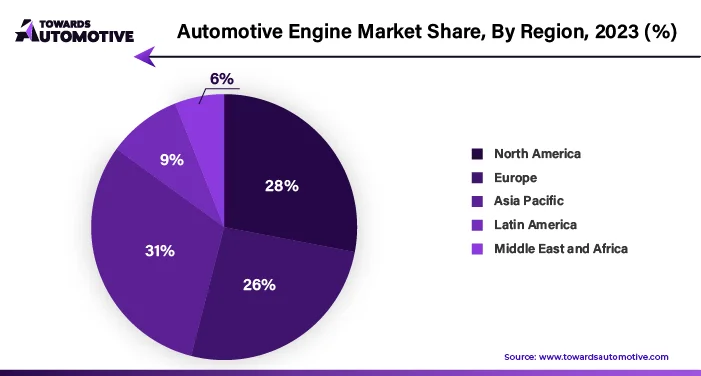April 2025

Senior Research Analyst

Reviewed By
The global automotive engine cooling systems market size is calculated at USD 35.94 billion in 2024 and is expected to be worth USD 57.71 billion by 2034, expanding at a CAGR of 4.85% from 2024 to 2034.

The automotive engine cooling systems market is a crucial segment of the automotive industry, ensuring optimal engine performance and longevity. Engine cooling systems regulate the engine’s temperature by dissipating excess heat generated during combustion, preventing overheating and potential engine damage. With the increasing demand for high-performance vehicles, both in passenger and commercial sectors, the need for efficient cooling systems is growing. Technological advancements in engine designs, as well as the rise of electric and hybrid vehicles, are also driving the evolution of cooling systems to meet new thermal management requirements.
Additionally, stringent emission regulations and fuel efficiency standards are pushing manufacturers to develop more advanced, lightweight, and energy-efficient cooling solutions. As vehicles become more powerful and environmentally conscious, the automotive engine cooling systems market is expected to expand, catering to the evolving needs of modern engines across different vehicle types. The integration of intelligent cooling systems, capable of adjusting to varying engine conditions, is further enhancing market growth, making this segment a vital component of automotive innovation and sustainability.
AI plays a transformative role in the automotive engine cooling systems market by enhancing the efficiency, intelligence, and adaptability of these systems. Traditional engine cooling systems rely on fixed algorithms and sensors to regulate engine temperature, but AI brings advanced data analytics and real-time decision-making to optimize cooling performance. By continuously monitoring engine conditions, such as temperature, load, and driving patterns, AI-powered cooling systems can dynamically adjust cooling levels, ensuring the engine operates at optimal temperatures under various conditions.
AI also enables predictive maintenance for cooling systems, using machine learning algorithms to analyze historical data and predict potential issues before they occur. This reduces the risk of engine overheating, enhances vehicle reliability, and extends the lifespan of cooling components by ensuring timely interventions.
Moreover, AI-driven cooling systems are particularly valuable in electric and hybrid vehicles, where managing battery and electric motor temperatures is critical. AI helps balance energy consumption between propulsion and cooling, improving overall vehicle efficiency. As automotive technology evolves, the integration of AI into engine cooling systems is driving innovations, leading to smarter, more efficient, and sustainable thermal management solutions.
The rising sales of two-wheelers are significantly driving the growth of the automotive engine cooling systems market. As two-wheeler ownership and usage increase globally, particularly in emerging economies, the demand for effective engine cooling solutions is escalating. Two-wheelers, including motorcycles and scooters, require robust cooling systems to manage the heat generated by their compact and high-performance engines. Effective engine cooling is crucial for preventing overheating, ensuring reliable operation, and enhancing the overall lifespan of these vehicles.
With the surge in two-wheeler sales, driven by urbanization, rising disposable incomes, and an increasing preference for cost-effective and fuel-efficient transportation, manufacturers are focusing on developing advanced cooling systems. These systems must cater to the unique requirements of two-wheelers, providing optimal heat dissipation in a compact form factor while maintaining energy efficiency. Additionally, technological advancements in cooling systems, such as the integration of advanced materials and innovative cooling techniques, are being driven by the growing demand from the two-wheeler segment.
This increase in demand for reliable and efficient engine cooling solutions for two-wheelers is consequently boosting the automotive engine cooling systems market, as manufacturers seek to meet the evolving needs of this rapidly expanding segment.

The automotive engine cooling systems market faces several restraints that could impact its growth. High costs associated with advanced cooling technologies and materials can limit their adoption, particularly in cost-sensitive markets. Additionally, the complexity of integrating new cooling systems with existing engine designs may pose technical challenges. Regulatory pressures and stringent emission norms require constant innovation, adding to development costs. Furthermore, the increasing shift towards electric and hybrid vehicles, which have different cooling requirements, may reduce demand for traditional engine cooling systems. These factors collectively present hurdles for market expansion.
Advanced control systems are creating significant opportunities in the automotive engine cooling systems market by enhancing the precision and efficiency of temperature management. These sophisticated control systems leverage real-time data from various sensors to monitor engine conditions, such as temperature, load, and speed. By analyzing this data, advanced control systems can dynamically adjust the operation of cooling components, optimizing performance and preventing overheating. This capability is particularly valuable in modern engines, which operate under varying conditions and require precise thermal management to maintain optimal performance and fuel efficiency.
The integration of advanced control systems also allows for more seamless coordination with other vehicle systems, such as air conditioning and powertrain components. This holistic approach enables improved overall vehicle efficiency and reliability. Furthermore, the development of AI-powered control systems is driving innovations in predictive maintenance, allowing for proactive interventions and reducing the risk of system failures. As automotive technology continues to evolve, the adoption of advanced control systems is becoming increasingly crucial, creating opportunities for market growth by delivering enhanced cooling solutions that meet the demands of next-generation vehicles.
The passenger vehicles segment held the largest share of the market. The growth of the automotive engine cooling systems market is significantly driven by the increasing demand for passenger vehicles. As the global automotive industry expands, particularly in emerging markets, the need for efficient and reliable engine cooling solutions becomes more pronounced. Passenger vehicles, including cars, SUVs, and light trucks, require advanced cooling systems to manage the heat generated by their engines, ensuring optimal performance, fuel efficiency, and longevity.
With rising vehicle ownership and a growing emphasis on vehicle performance and comfort, there is a heightened demand for sophisticated cooling technologies that can handle the diverse operating conditions of modern engines. Engine cooling systems play a crucial role in maintaining the engine’s temperature within optimal ranges, preventing overheating, and reducing wear and tear. This demand is further fueled by advancements in engine technology, which often result in higher thermal loads and more complex cooling requirements.
Additionally, the trend towards more powerful and efficient engines, as well as the integration of advanced features such as turbocharging and hybrid powertrains, is driving the development of innovative cooling solutions. Automakers are investing in cutting-edge cooling technologies, including variable cooling systems, advanced materials, and intelligent control mechanisms, to meet these evolving needs. As passenger vehicle sales continue to rise and technology advances, the automotive engine cooling systems market is set to experience sustained growth, driven by the ongoing need for effective thermal management solutions in the ever-evolving automotive landscape.

The liquid cooled segment dominated the industry. The adoption of liquid-cooled engines is a key driver of growth in the automotive engine cooling systems market, reflecting a shift towards more efficient and effective thermal management solutions. Unlike traditional air-cooled systems, liquid-cooled engines use a coolant, typically a mixture of water and antifreeze, to absorb and dissipate heat generated by the engine. This method offers superior temperature control, enabling engines to operate at optimal temperatures regardless of external conditions, which enhances performance, fuel efficiency, and overall reliability.
Liquid-cooled engines are increasingly preferred in modern vehicles due to their ability to handle higher power outputs and more demanding operating conditions. The precise temperature regulation provided by liquid cooling is essential for high-performance engines, which produce substantial amounts of heat during operation. This cooling method also supports the integration of advanced technologies, such as turbocharging and hybrid powertrains, which further drive the need for sophisticated cooling systems.
Moreover, the growing focus on vehicle comfort and emissions regulations is propelling the demand for liquid cooling solutions. These systems help maintain consistent engine temperatures, reducing emissions and improving fuel efficiency, which aligns with stringent environmental standards. As automotive technology continues to evolve, with more vehicles featuring high-performance engines and advanced powertrains, the need for effective liquid cooling systems becomes increasingly critical. This trend is driving significant growth in the automotive engine cooling systems market, as manufacturers develop and deploy advanced liquid cooling technologies to meet the needs of modern engines and enhance vehicle performance.
Asia Pacific dominated the automotive engine cooling systems market. The automotive engine cooling systems market in Asia Pacific is experiencing robust growth, driven by a confluence of factors including rising vehicle production and sales, economic growth and urbanization, technological advancements, and infrastructure development. The Asia Pacific region, a global leader in automotive manufacturing and consumption, is witnessing a surge in vehicle production and sales, particularly in countries like China, India, and Japan. As vehicle ownership increases, so does the demand for efficient and reliable engine cooling systems, essential for maintaining optimal engine performance and compliance with stringent emissions regulations.
Economic growth and rapid urbanization are further fueling this demand. As urban areas expand and the middle class grows, there is a heightened need for personal and commercial vehicles to support the region’s burgeoning economies. This growth in vehicle numbers drives the need for advanced cooling solutions capable of handling higher thermal loads and improving fuel efficiency.
Technological advancements play a crucial role in this market expansion. Innovations such as variable cooling systems, advanced materials, and intelligent control mechanisms are enhancing the performance and efficiency of engine cooling systems. These advancements not only support the demands of high-performance engines but also align with evolving regulatory standards.
Infrastructure development is another significant driver. Investments in expanding road networks, urban transportation systems, and overall infrastructure contribute to increased vehicle usage and ownership. This, in turn, boosts the need for reliable engine cooling systems to support growing automotive fleets.

North America is expected to grow with the highest CAGR during the forecast period. The automotive engine cooling systems market in North America is experiencing significant growth, driven by a range of factors including the rising demand for sports cars, a focus on fuel efficiency and performance, the growing popularity of electric and hybrid vehicles, and robust aftermarket growth. The increasing enthusiasm for sports cars, characterized by their high-performance engines, necessitates advanced cooling systems capable of managing the greater thermal loads these vehicles produce. As consumers seek out vehicles that offer superior speed and handling, manufacturers are investing in sophisticated cooling technologies to ensure optimal engine performance and longevity.
Additionally, there is a strong focus on fuel efficiency and performance, driven by both consumer preferences and stringent regulatory standards. In response to demands for better fuel economy and reduced emissions, automotive cooling systems are being designed to enhance engine efficiency and comply with increasingly rigorous environmental regulations. This trend is especially pertinent in North America, where regulatory frameworks, such as the Corporate Average Fuel Economy (CAFE) standards, drive the development and adoption of advanced cooling solutions.
The growing popularity of electric and hybrid vehicles is another crucial factor. These vehicles require specialized cooling systems to manage the heat generated by their batteries and electric motors. As North American consumers embrace greener transportation options, the demand for innovative cooling solutions tailored to these new powertrains increases.
Finally, the substantial growth of the aftermarket sector contributes to the expansion of the automotive engine cooling systems market. With a large vehicle fleet in North America, the need for replacement and upgraded cooling systems drives aftermarket sales. Together, these factors create a dynamic environment for the growth of the automotive engine cooling systems market, highlighting North America’s pivotal role in advancing automotive technology.
By Vehicle Type
By Engine Type
By Region
April 2025
April 2025
April 2025
April 2025
Dr. Arjun Patel is a distinguished expert in the automotive industry, holding advanced degrees in Automotive Engineering and Mechanical Engineering. His expertise spans automotive market dynamics, technological advancements, and sustainable practices. Dr. Patel excels in conducting in depth research and analysis on market trends, consumer preferences, and the economic implications within the automotive sector. He is renowned for his insightful publications on topics such as electric vehicles, autonomous driving technologies, and the evolution of sustainable transportation solutions. Dr. Patels research contributions have significantly advanced understanding in the field, earning him recognition as a leading authority in automotive research and analysis.
We offer automotive expertise for market projections and customizable research, adaptable to diverse strategic approaches.
Contact Us